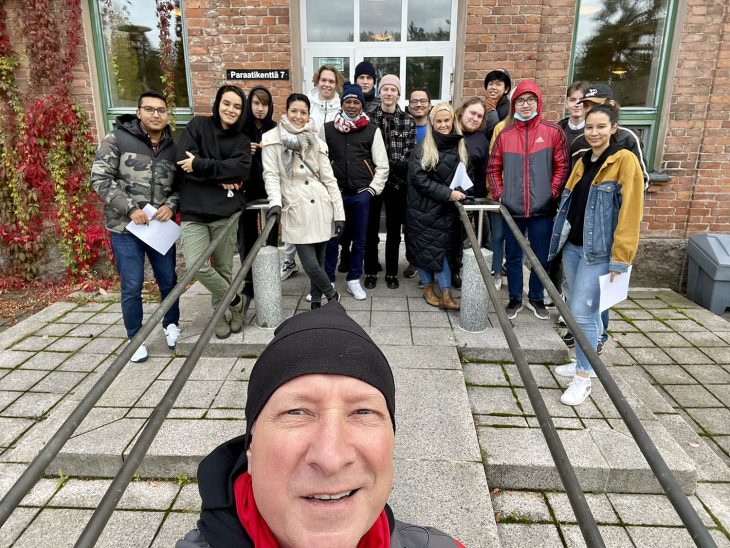
The changing needs of education – to be or not to be – online…
I have previously written about how the current Covid-19 pandemic has made its impact on the world. In particular, I last wrote about the current dilemma for employers and their employees, i.e. the attitude to remote working and whether it will continue in full, in part, or not at all.
This week I am focusing on the needs of education. Globally we have faced a similar situation of having to temporarily close places of education to prevent further spreading of the virus, and instead establish virtual learning spaces, i.e. online teaching, to continue to offer education to those that need or want it. Now where do we go from here?
As the pandemic seems to have turned from something we can take steps to prevent the spread of, into more of an endemic – something we have to live with – many countries are slowly trying to resume some form of normality. This is also true in education. At Xamk, we are returning to full-time contact teaching from November, and all staff are now back on campus after remote working for almost 18 months.
However, as is the case with other industries, some staff are requesting to remain working remotely, and this is being approved in cases where there is no clear benefit by having to work from campus. Of course, this is mainly the case with administrative staff rather than lecturers. With teaching face-to-face already ongoing for first-year students, restarting this soon for second and third-year students is a logical step.

Most students have expressed concerns over distance education over the last year – connection problems, feelings of separation and solitude, lack of motivation, to name just a few – but on the other hand, some also feel that they want to carry on with online sessions only, especially those international students that have returned to their home countries and do not wish to travel back to Finland. Of course the situation is double-edged – on the one hand distance education gives more freedom to the student, not having to attend campus sessions, no travelling involved, and even not having to rent student accommodation (for this that can still live at home). On the other hand, returning to face-to-face studies makes for a much more immersive study environment – meeting up with student colleagues, having the change for one-to-one discussions with lecturers, feeling more a part of (rather than apart from) university life. Also, the possibility of getting lunch at the student restaurant again is an added bonus!
As for lecturers, I have heard mixed feelings there also. Some are enjoying the freedom of remote teaching and wish to carry on, while some (myself included) are longing to get back in the classroom with students for a more connected and shared experience. Personally, I believe that face-to-face education is much more motivating for young students that have only just started their studies, and who possibly lack the experience and self-discipline for studying wholly online.

Whichever category you happen to fall into, student or lecturer, remote or face-to-face, let’s all enjoy the autumn colours for now, and hope that normal (or improved) service will be resumed as soon as possible.
- Editorial Staff academic year 2024-2025 - 1st October 2023
- Contact details - 1st October 2023
- About Insider - 1st October 2023
